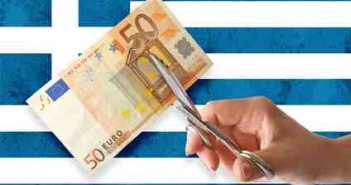The Greek deal is only a few days old. Originally, the deal left some open ends. Yet even the details that were announced seem to be at risk at the moment.
Nevertheless, EUR/USD remains above 1.30. How long will it last?
One of the pillars of the patched up Greek deal is that the Greek government will buy Greek bonds (issued after the PSI), at current market levels from private investors. Afterwards, the Greek government will practically erase them. As markets value these bonds at low prices, between a quarter and a third, this buyback program will reduce the debt level of Greece.
However, Greek banks that hold most of the private debt, oppose such a move – they already “volunteered†to accept high losses in March, and they cannot afford to lose more money. It will jeopardize their plans to recapitalize. The Greek government has already called them to act in patriotism, but patriotism, like solidarity, also has its limits.
According to the troika report, the banking sector remains “fragileâ€.
The heads of Greek banks expressed their opposition to the Greek finance minister Yannis Stournaras. What will happen if there is no buyback? Various officials said there is a “Plan Bâ€, but nobody detailed.
However, at the moment, EUR/USD is holding nicely above 1.30, mostly thanks to optimism about resolving the fiscal cliff in the US. How long can this last?
And another question: Will the IMF stay on board if Greece’s predicted debt levels will rise and become unsustainable according to the organization?
The IMF also referred to the buyback plan:
A spokesman for the IMF, Gerry Rice, stressed that the successful completion of the bond buyback scheme was necessary before the release of a crucial 34.4-billion-euro rescue loan that Greece is depending on next month to avoid default
There are already signs that the IMF is not keen on staying.



